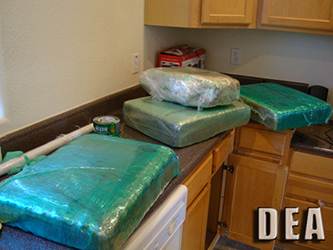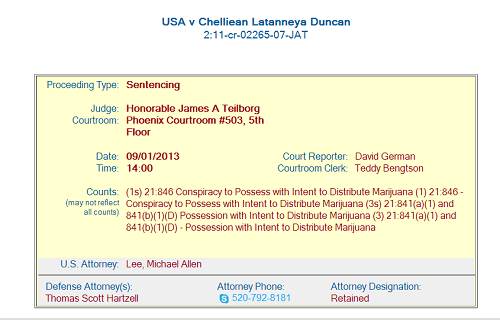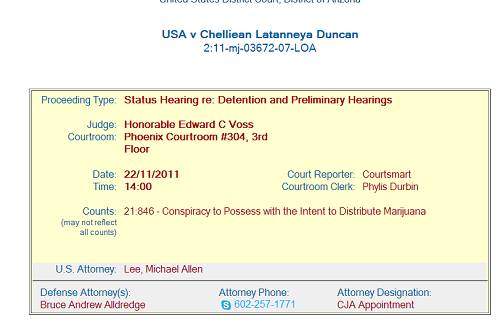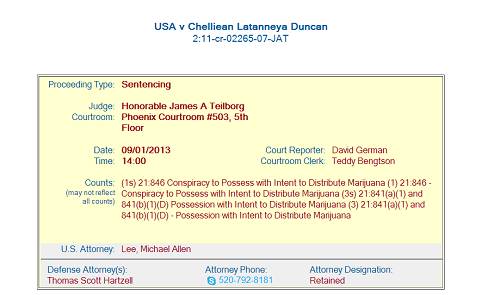BINDING AND LOOSING- GOODMORNING
Binding and Loosing
“Binding” and “loosing” were common terms used by the Rabbis in biblical times. When the rabbis “bound” something, they “forbade” it, and when they “loosed” something, they “permitted” it. In spite of the fact that the terms were commonly used at the time of Christ, many Christians today are confused about what these terms mean. “Bind” and “loose” are used in Matthew 16:19 and 18:18, and to understand those verses we will look at the biblical meanings of the words themselves, and also the translation of the verses as a whole, because they have been mistranslated in most English versions.
Matthew 16:18 and 19
(18) And I tell you that you are Peter, and on this rock I will build my church, and the gates of Hades will not overcome it.
(19) I will give you the keys of the kingdom of heaven; whatever you bind on earth will be bound in heaven, and whatever you loose on earth will be loosed in heaven.”
Matthew 18:18
“I tell you the truth, whatever you bind on earth will be bound in heaven, and whatever you loose on earth will be loosed in heaven.
The Greek scholar, A. T. Robertson, wrote about binding and loosing: “To ‘bind’ (dêsêis) in rabbinical language is to forbid; to ‘loose’ (lusêis) is to permit” [emphasis ours]. [1] The well-respected Bible commentator, Adam Clarke, agrees with Robertson, and writes:
It is as plain as the sun, by what occurs in numberless places dispersed throughout the Mishna, and from thence commonly used by the later rabbins [rabbis] when they treat of ritual subjects, that binding signified, and was commonly understood by the Jews at that time to be, a declaration that any thing was unlawful to be done; and loosing signified, on the contrary, a declaration that any thing may be lawfully done. Our Savior spoke to his disciples in a language which they understood…. [2]
The Exegetical Dictionary of the New Testament adds: “‘Bind’ and ‘loose’ are technical terms in Judaism…with respect to teaching, the phrase is used for authoritative exposition of the law by an authorized, ordained rabbi, who has authority ‘to forbid and to permit.’ ” [3] The Hebraic scholar John Lightfoot wrote five pages on binding and loosing in his New Testament commentary on Matthew. He writes:
…to bind and loose, a very usual phrase in the Jewish schools, was spoken of things, not of persons…. One might produce thousands of examples out of their writings….the reader sees abundantly enough both the frequency and common use of this phrase, and the sense of it also; namely, first, that it is used in doctrine, and in judgments, concerning things allowed or not allowed in the law. Secondly, that ‘to bind” is the same with to forbid, or to declare forbidden. To think that Christ, when he used the common phrase was not understood by his hearers in the common and vulgar sense, shall I call it a matter of laughter or of madness? …Hence they [the Apostles] bound, that is, forbade, circumcision to the believers… They loosed, that is, allowed, purification to Paul and to four other brethren for the shunning of a scandal, (Acts 21:24). [4]
From the many examples of “bind” and “loose” in the Jewish writings, we can see that they referred to “forbidding” or “permitting” something, and they were used of things, such as rules and regulations, not of people. The rabbis did not bind or loose people. “Binding” (forbidding) and “loosing” (permitting) were necessary because the Law of Moses could not contain all the regulations necessary to govern a congregation and society. Therefore, the religious leaders were required to “bind” and “loose” activities in the congregation that were not specifically included in the Law of Moses. This was true in Jesus’ day, and is still true today.
Every church today has rules and regulations, things forbidden and things allowed, that are not specifically written in the Bible, but are extrapolated from it. Thus leaders in a church today might “bind,” forbid, specific immodest clothing in the worship service based on the general tenet of Scripture that people dress modestly. Or, specific foul language might be “bound,” forbidden, on church property based on the general biblical rule about not using obscenity. The Jewish faith in Jesus’ time was no different than our modern churches, and the leaders imposed many rules and regulations that were not specifically written in the “Law,” the “Torah,” which is the first five books of the Old Testament [Genesis through Deuteronomy].
Although the Hebrew word “torah” has been translated into English as “law,” that is not its actual meaning. What it really means is “instruction.” The Brown-driver Briggs Hebrew Lexicon [5] gives the first definition of torah as “instruction,” and the second definition as “law (properly, direction).” The point of the Torah (Instruction) is to give specific rules and examples that can then be used as the basis for general instruction about life. Thus, the basis of Torah study is similar to American case law. For example, when it comes to building buildings, the Torah states that a person who builds a house has to put a railing around the flat roof so the people do not fall off (Deut. 22:8). The Torah cannot list every possible building regulation, but it can show by a clear example that houses should be built in a manner that is safe for the occupants and visitors. Thus, the “Book of Instruction” teaches the general principle that people must build safe buildings by using a specific example.
Another example of a specific regulation in the Torah that teaches a principle which can be applied in many different ways concerns fires. Outdoor fires were common in Israel for cooking and warmth, since many people lived in tents, and they were often kept burning because of the difficulty of starting another. However, if a man’s fire got out of control and burned up his neighbor’s crop, he was responsible to replace what was burned (Exod. 22:6). The point of the Instruction (Torah) is not that we are responsible only for fires we cause, but that we are responsible for the consequences of our actions, and must repay people who are hurt by what we do. It would not have been practical for God to write a book large enough to include specific regulations for every possible scenario in human life. Therefore, the Torah gives specific instructions that we can learn, and then have a good idea of what God would allow or forbid in every situation we face in life.
Since there were many specific situations that were not written about in the Torah, the rabbis had to make lots of rules to cover individual cases, and they “bound” (forbid) or “loosed” (permitted) activities based on their interpretation of the Torah. Some of their interpretations were correct, while some were incorrect. For example, the Torah said not to work on the Sabbath day (Exod. 20:8-11), but it never defined which activities were work, so the rabbis had to make judgments about it. They decided that walking more than 2000 cubits (about one-half mile) was “work,” and they “bound,” forbid, anyone from walking further than that on the Sabbath, which is why the Bible uses the phrase, “Sabbath day’s journey” (Acts 1:12 – KJV). No one in Scripture ever challenged the rabbis’ decision on that issue.
However, the rabbis decided that healing on the Sabbath was “work,” and they “bound,” that too. Thus, when Jesus healed on the Sabbath, the synagogue ruler said, “…There are six days for work. So come and be healed on those days, not on the Sabbath” (Luke 13:14). Jesus ignored that ridiculous interpretation of the Torah, and called the religious leaders “hypocrites.” Notice that Jesus did not say that the leaders were wrong for trying to apply general teaching of the Torah to specific situations not mentioned by Moses; he said their interpretation about healing was wrong.
We as Christians need to learn from the rabbis and Jesus. We assert that the Bible is our rule of faith and practice. But the Bible, like the Torah [Genesis through Deuteronomy], does not cover every situation that comes up in Christian life and leadership. What does a Christian do when the Bible does not specifically address the situation the leader is facing? We must use the Bible like the rabbis used the Torah. We must learn from it and then apply the lessons we have learned to the situation we are facing. We must bind (forbid) or loose (permit) activities based on our best understanding of the Bible. We must be humble and wise, because as Jesus taught us, we are responsible for the decisions we make. Our rules may be good and helpful, or, like the rabbis forbidding healing on the Sabbath, they may be hurtful. As leaders over God’s people, the Lord will judge us for what we forbid and allow.
Once we realize that “binding” and “loosing” were common terms for “forbidding” and “permitting,” it becomes clear that there are many things every leader must forbid or allow. In fact, given the frequency in which binding and loosing appear in the Rabbinic writings, it is somewhat amazing they only appear twice in Scripture. After all, the Rabbis bound and loosed all sorts of things that are mentioned in the Gospels, including “binding” people from eating with unwashed hands (Mark 7:3), or from picking grain on the Sabbath (Matt. 12:1 and 2). Meanwhile, they “loosed” a person from having to support his parents (Matt. 15:3-6), and “loosed” the profiteering going on in the Temple, as greedy people sold animals and changed currencies in a manner that took advantage of the people, something that aroused Jesus’ ire (John 2:13-16).
The fact that “bind” and “loose” were common terms for “forbid” and “permit” explains why Jesus used them in different contexts. In Matthew 16:19, Jesus spoke of binding and loosing in the context of being a spiritual leader over people, because leaders constantly have to make decisions that affect people’s lives. In Matthew 18:18, Jesus spoke of binding and loosing in the context of forgiving someone who has sinned against you but will not admit it.
How do we “forbid” or “permit” in the context of forgiveness? If we make a decision to forgive a person who has sinned against us without getting any kind of restitution from him, we “loose” (permit) him to live as if the sin had not happened. On the other hand, if for example, we make the decision that because of his stubbornness and hardness of heart he is no longer welcome in our congregation, we “bind” (forbid) him to continue his life with no consequences. In the gospel of John, Jesus taught about binding and loosing in the context of forgiveness, but did not specifically mention the words “binding” and “loosing.” Jesus said, “If you forgive anyone his sins, they are forgiven; if you do not forgive them, they are not forgiven (John 20:23). It is impossible for a leader to run a congregation without making decisions about “binding” and “loosing.”
Now that we know that the word “bind” means “forbid,” and “loose” means “permit,” we need to properly translate the verses that contain them. Almost every English version translates Matthew 16:19 and 18:18 in a way similar to the NIV: “I tell you the truth, whatever you bind on earth will be bound in heaven, and whatever you loose on earth will be loosed in heaven” (Matt. 18:18). According to this translation, we, as disciples, make a decision to bind or loose, and God then follows our lead. This translation has produced wrong doctrine in the Church. For example, the commentator Albert Barnes, author of the well known commentary set, Barnes’ Notes, writes: “The meaning of this verse is, whatever you shall do in the discipline of the church shall be approved by God….” [6] That is not a correct interpretation of the verse, and not the way ministry works.
God’s ministers do not make commands that God must approve and follow. Rather, God’s ministers must become aware of what God wants done, and then follow His lead. Jesus himself worked that way, as Scripture makes clear.
John 5:19
Jesus gave them this answer: “I tell you the truth, the Son can do nothing by himself; he can do only what he sees his Father doing, because whatever the Father does the Son also does.
John 5:30
By myself I can do nothing; I judge only as I hear, and my judgment is just, for I seek not to please myself but him who sent me.
John 8:28
…I do nothing on my own but speak just what the Father has taught me.
Jesus’ disciples, like Jesus himself, are to follow God’s leading, as the correct translation of Matthew 16:19 and 18:18 makes clear. The 1995 revision of the New American Standard Bible does a good job translating Matthew 16:19 and 18:18.
Matthew 18:18 (1995 NASB) [7]
“Truly I say to you, whatever you bind on earth shall have been bound in heaven; and whatever you loose on earth shall have been loosed in heaven.
The Greek text in the phrase that most versions translate as, “will be bound in heaven” does not have a simple future tense, as “will be” implies, and the verb “bind” is passive in the Greek text, so “shall have been bound” or “must have been bound” are good translations of the Greek. [8] An excellent translation of Matthew 18:18 was done by Charles Williams.
Matthew 18:18 (Williams’ Translation) [9]
I solemnly say to you, whatever you forbid on earth must be already forbidden in heaven, and whatever you permit on earth must be already permitted in heaven.”
Julius R. Mantey, the Greek grammarian and scholar who co-authored A Manual Grammar of the Greek New Testament, wrote that Williams’ translation did a better job of translating the Greek verb into English than any other New Testament he had studied, and he gave Matthew 16:19 and 18:18 as examples of verses that Williams translated very well. [10]
Once Matthew 16:19 and 18:18 are properly translated, we have clear teaching on how to act before God. It is not that we bind or loose and then God backs up what we do. It is God who first binds or looses, and then we follow His leading and do the same on earth. As we have seen, even Jesus did not bind and loose on his own without knowing the Father’s will.
One of the most important lessons we can learn is that God may lead us in a decision that we make. If we pray and look for His guidance, it is usually there. James says, “If any of you lacks wisdom, he should ask God, who gives generously to all without finding fault, and it will be given to him” (James 1:5).
We now have enough information to clearly understand what Jesus was teaching to his disciples. Jesus looked to God to know what to do in situations not covered in the Torah. In contrast, Jesus’ disciples had looked to him for direction, but what would they do when he was gone? He knew his disciples needed instruction in how to run the fellowships that would spring up all over the globe, so he taught them to be sure to follow God’s lead in what they forbade or permitted. Jesus’ instruction to his disciples made perfect sense in the culture of his day, and still makes perfect sense today. We are always to look for God’s guidance before we make rules that forbid or permit people’s actions.
There is a trend today in Evangelical and Charismatic Christianity to try to “bind” and “loose” demons. This usually happens in the context of healing or deliverance sessions. The New Testament clearly teaches that a minister of the Gospel has power over demons. However, at no time in the New Testament does Jesus, Peter, Paul, nor any other minister ever “bind” or “loose” a demon. Remember, in the culture, binding and loosing referred to things, not people, and not demons. Furthermore, the context of the verses that use “bind” and “loose” have nothing to do with demons. The vocabulary about binding and loosing was already common before Jesus started his ministry, and Jesus was the first man in history to regularly exercise authority over demons, so the binding and loosing vocabulary could not have developed in reference to demons.
Ministers of the Gospel can cast out demons or, like Jesus, forbid them from speaking or expressing themselves. However, we must realize that the only effective authority we have over demons is the authority that God gives us, which we will know by revelation. When dealing with demons, every minister of the Gospel must be very careful to walk by revelation and guidance from God, and not step over into ministering out of the flesh. We do not have legitimate authority to command demons beyond the revelation we receive. It is possible that God or the Lord might give us revelation to “bind” a demon in the sense of forbidding it to do some specific thing, such as speaking, but it is clear we do not have any global authority to “bind” demons to keep them from acting.
Ministers must always be on guard against the desire of the flesh to have power and control, and against trends that arise in Christianity that sound good but are not really scriptural. If a minister is in a deliverance session and gets revelation to “bind” (forbid) something the demon is doing, or “loose” (allow) the demon in some area of activity, that is well and good. But saying, “I bind you, demon, in the name of Jesus Christ,” without specific revelation, is just powerless words.
The most profound problem that occurs when we associate “binding” and “loosing” with demons is that it creates a terrible misunderstanding of what Jesus really meant in Matthew 16:19 and 18:18. The truth that Jesus taught about binding and loosing is one that every Christian disciple should know. There will always be things we need to forbid, and things we need to allow. Church leaders cannot afford to be wishy-washy or indecisive. We must walk in faith, love, and power, and be willing to make decisions that influence the lives of others, but, as Jesus taught us, what we forbid on earth must have first been forbidden in heaven, and what we permit on earth must have been first permitted in heaven.
One final thing that is worth paying attention to when it comes to the binding and loosing in Matthew 16:18 and 19 is that the Roman Catholics have concluded that it is only Peter and his spiritual descendants, the Popes, who have the keys to the kingdom and can bind and loose. However, that is not correct. It is clear from the use of “bind” and “loose” in the culture, and in the scriptures written after Matthew 16:18, that Jesus’ disciples did not think that he meant his teaching for Peter alone. A. T. Robertson explains this point well.
“The same power here given to Peter belongs to every disciple of Jesus in all the ages. Advocates of papal supremacy insist on the primacy of Peter here and the power of Peter to pass on this supposed sovereignty to others. But this is all quite beside the mark. We shall soon see the disciples actually disputing again (Mt 18:1) as to which of them is the greatest in the kingdom of heaven as they will again (20:21) and even on the night before Christ’s death. Clearly neither Peter nor the rest understood Jesus to say here that Peter was to have supreme authority. What is added shows that Peter held the keys precisely as every preacher and teacher does. To ‘bind’ (dêsêis) in rabbinical language is to forbid, to ‘loose’ (lusêis) is to permit. Peter would be like a rabbi who passes on many points. …The teaching of Jesus is the standard for Peter and for all preachers of Christ. Note the future perfect indicative (estai dedemenon, estai lelumenon), a state of completion. All this assumes, of course, that Peter’s use of the keys will be in accord with the teaching and mind of Christ. The binding and loosing is repeated by Jesus to all the disciples (18:18). Later after the Resurrection Christ will use this same language to all the disciples (John 20:23), showing that it was not a special prerogative of Peter. He is simply first among equals because on this occasion he was spokesman for the faith of all.” [11]
It is clear from the biblical meaning of “binding” and “loosing,” and from Matthew 18:18 and John 20:23, which Christ spoke to his disciples in general, that binding and loosing applies to every disciple of Christ. Every Christian leader must make decisions to forbid or allow certain specific activities. Let us do so with humility of mind, always following the leading of the Lord, with full awareness that we are responsible before the Lord for the judgments we make.
UNO LIKE DI MONDEH??
DASH IT OUT SAME WAY PAN WI FI DI RES A DI YEAR..THANK YOU ![]()
TRACEY CHAMPION SEEING JAIL?

FILED UNDER ARIZONA POT RING, CHADWICK MYERS, RAFIQ ALBERT BROOKS
Some of the marijuana packages seized from Arizona pot ring.
Earlier this month, a federal jury in Phoenix convicted Rafiq Albert Brooks of marijuana trafficking charges, bringing a close to one of the largest criminal probes of a pot ring in Arizona. Dubbed Operation Lost Package, the 18-month investigation focused on an 11-person ring that was moving large quantities of high-grade ganja from Phoenix to multiple cities on the east coast in boxes shipped from U.S. postal offices. The suspects were of Hispanic and Jamaican descent.
According to the federal indictment, Hispanic bulk marijuana dealers supplied the dealers of Jamaican descent, who would then divvy up the weed to ship in packages. A task force made up of the Drug Enforcement Administration, the Scottsdale Police Department, the Internal Revenue Service, and the United States Postal Inspection Service zeroed in on 31-year-old Chadwick Myers, who was shipping marijuana from his apartment in Glendale, AZ. Between April and October 2011, investigators intercepted over ten packages containing more than 100 pounds of marijuana from Meyers’ apartment and other apartments where the suspects resided.
On Nov. 17, 2011, the task force raided the Glendale apartment and arrested the 11 suspects, including Brooks and Myers. Authorities confiscated more than $11,000 in cash, two bales of marijuana in the trunk of a Chrysler sedan, and a smaller shrink-wrapped package of pot in the trunk of a Buick. Inside the apartment, the cops found 150 pounds of marijuana already individually wrapped and ready for shipment.
The probe also discovered that cash proceeds from the trafficking were structured and deposited into accounts at Chase and Wells Fargo banks in amounts ranging from $4,000 to $9,000 to further the conspiracy.
This past April 25, a federal grand jury in Phoenix returned a 76 count superseding indictment against 11 defendants charging them with multiple crimes including conspiracy to possess with intent to distribute marijuana, structuring financial transactions through a domestic financial institution and promotional money laundering.
Brooks was the only member to take his chances at trial. The other 10 defendants, including Myers, pled guilty.
Here’s a list of the other defendants:
Koy Kayon Williams pleaded guilty to conspiracy to possession with intent to distribute marijuana and was sentenced to 135 months in federal prison.
Genaro Barra-Mendoza pleaded guilty to possession with intent to distribute marijuana and was sentenced to time served.
Victor Arrellano-Zuniga pleaded guilty to possession with intent to distribute marijuana and was sentenced to 14 months in federal prison.
Maximiliano Riviera-Landers pleaded guilty to possession with intent to distribute marijuana. He is scheduled to be sentenced on March 11, 2013.
Luis Alberto Gutierrez pleaded guilty to possession with intent to distribute marijuana. He is scheduled to be sentenced on January 7, 2013.
Chelliean Latanneya Duncan pleaded guilty to possession with intent to distribute marijuana. She is scheduled to be sentenced on January 7, 2013.
Sharon Sophi Johnson pleaded guilty to possession with intent to distribute marijuana. She is scheduled to be sentenced on January 7, 2013.
Bianca McKinney pleaded guilty to possession with intent to distribute marijuana. Sentencing date to be determined.
Kristopher Paul Stone pleaded guilty to conspiracy to possess with intent to distribute marijuana and structuring financial transactions through a domestic financial institution. He is scheduled to be sentenced on February 19, 2013.
Renard Allistere White pleaded guilty to possession of a firearm in furtherance of a drug trafficking crime. He is scheduled to be sentenced on January 14, 2013.
RED ANTS IN THE CREAM
MAVADO FI CHANGE HIM NAME TO MOBUDDER LIKE YESSIDEH BECAUSE A HIM SEH SPREAD …BUTTER DOE HAVE NUTTIN PAN HIM ..DIS AH DI OWNER FI C&J RESTAURANT A BROOKLYN STEP DAUGHTER..SHE SEH MOVADO GI HAR RING OOOOOOOOOOOOOOOO …MI NUH KNOW IF A RING WORM OR SOAP RING BUT SHE SEH SHE GET A RING…………..FROM HAR POOKIE MAVADO AND HE WAS AT HER PARTY…YES MI LOVE…MO ….WHERE ARE YOU? DERE IS A RED ANTS SIPPING OUT YOUR CREAM OO
****RULES**** 1. Debates and rebuttals are allowed but disrespectful curse-outs will prompt immediate BAN 2. Children are never to be discussed in a negative way 3. Personal information eg. workplace, status, home address are never to be posted in comments. 4. All are welcome but please exercise discretion when posting your comments , do not say anything about someone you wouldnt like to be said about you. 5. Do not deliberately LIE on someone here or send in any information based on your own personal vendetta. 6. If your picture was taken from a prio site eg. fimiyaad etc and posted on JMG, you cannot request its removal. 7. If you dont like this forum, please do not whine and wear us out, do yourself the favor of closing the screen- Thanks! . To send in a story send your email to :- [email protected]










Recent Comments